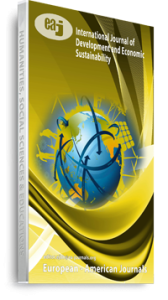With the fall in the international market prices of petroleum, timber has become a major source of foreign earnings in Cameroon. Timber exports have grown in volume over time, constituting largely of unprocessed and semi-processed logs, with little added value. However, the success of a strategy to increase timber exports depends, among others on the knowledge of factors affecting it. It is on the basis of this that this study is designed to investigate the determinants of timber exports in Cameroon over 35 years, from1980 to 2014 inclusive using time series data from the World Bank, United Nations Conference on Trade and Development statistics and the Food and Agricultural Organization database. Employing the Ordinary Least Squares technique, findings reveal that the volume of round wood export, total labour force, foreign direct investment inflows, foreign earnings from timber, total debt service on external debt, exchange rate and trade openness have a positive but insignificant effect on timber exports in Cameroon while inflation rate and gross fixed capital formation have negative effects on Cameroon’s timber exports, with only the effect of gross fixed capital formation being significant. We recommend that value should be added to timber exports through the creation of manufacturing industries which can transform wood from its raw form to its finished form.
Keywords: Export Trade, Foreign Earnings, Logs, Primary Commodity, Round Wood

